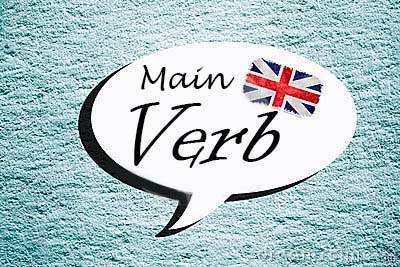 Verb menurut grammar bahasa Inggris adalah kata kerja yang merupakan kata yang menunjukkan pekerjaan, perbuatan, dan keadaan subjek.
Verb menurut grammar bahasa Inggris adalah kata kerja yang merupakan kata yang menunjukkan pekerjaan, perbuatan, dan keadaan subjek.
Contoh: Run (lari), sleep (tidur), eat (makan), talk (berbicara).
Kata kerja dapat diklasifikasikan berdasarkan bentuknya, objeknya, perubahan waktunya, dan fungsinya.
Kelompok kata kerja yang didasarkan pada fungsinya dalam suatu kalimat ada 3 jenis, yaitu Full Verb (kata kerja penuh), Linking Verb (kata kerja penghubung), dan Auxiliary Verb (kata kerja bantu). Penjelasannya adalah sebagai berikut:
1. Full Verb
Full verb (kata kerja penuh) adalah kata kerja yang sudah memiliki arti sendiri secara penuh. Dalam penerapannya, full verb yang biasa juga disebut dengan nama main verb, lexical verb, ordinary verb, principal verb, atau meaningful verb hanya disebut ‘verb’ saja.
Ciri-ciri full verb:
- Bentuknya bisa berubah-ubah tergantung pada unsur pelaku (person), jumlah (number), dan bentuk waktu (tenses). Full verb inilah yang sebenarnya dikelompokkan menjadi kata kerja regular dan irregular.
- Bila digunakan dalam kalimat negative atau interrogative, full verb ini membutuhkan bantuan auxiliary verb (kata kerja bantu).
Contoh:
– make (membuat) – find (menemukan)
– read (membaca) – type (mengetik)
– cry (menangis) – sleep (tidur)
2. Auxiliary Verb
Auxiliary verb atau kata kerja bantu adalah kata kerja yang membantu kata kerja lain untuk membentuk sebuah struktur kalimat yang lengkap. Auxiliary verb ini juga biasa disebut dengan helping verb, special verb, atau pre-verb.
Ciri-ciri auxiliary verb:
• Tidak dapat berdiri dalam suatu kalimat (memerlukan full verb).
• Umumnya, digunakan dalam kalimat-kalimat yang predikatnya bukan berupa kata kerja (kalimat nominal).
• Pada kalimat tanya (yes/no question) diletakkan di awal kalimat sebagai pengganti kata tanya.
• Digunakan dalam pembentukan kalimat pasif.
Auxiliary verb, meliputi:
• Be (is,am, are, was, were)
Is, am, are merupakan be yang digunakan dalam present tense.
Am digunakan untuk subjek I. Is digunakan untuk subjek he,she,it. Are digunakan apabila subjeknya you, we, they.
Was, were, dari is, am, are dimana was digunakan apabila subjeknya I, he,she, it sementara were digunakan apabila subjeknya you, we, they.
• Do, Does, Did
Do digunakan untuk subjek I, you, they, te untuk membentuk kalimat negatif dan kalimat tanya pada bentuk kalimat verbal (kalimat yang predikatnya berupa kata kerja).
Does digunakan untuk subjek he, she, it untuk membentuk kalimat negatif dan kalimat tanya pada bentuk kalimat verbal.
Did merupakan bentuk lampau dari do dan does yang dapat digunakan untuk semua subjek.
• Have, has, hadHave digunakan untuk membentuk kalimat Present Perfect atau Present Perfect Continuous tense jika subjeknya I, you, we, atau they.
Has digunakan untuk membentuk kalimat present perfect tense atau Present Perfect Continuous jika subjeknya he, she, atau it.
Had merupakan bentuk lampau dari have dan has. Had digunakan oleh semua subjek untuk membentuk kalimat Past Perfect Tense atau Past Perfect Continuous Tense.
Gak punya waktu cukup untuk menguasai materi TOEFL yang banyak?
Kami punya solusinya dengan kehebatan Genius TOEFL
• Modal Present/Future
Should, secara umum mengacu pada:
– Ekspektasi/dugaan/harapan
Contoh:
(a) This movie should be very good.
(b) The food should be delicious.
– Rekomendasi/saran
Contoh:
(a) You should discuss about it with your partner first.
(b) I think we should talk it over with our lecturer.
(c) It should be thought through maturely.
– Kritik terhadap suatu kejadian
Contoh:
(a) You shouldn’t eat too much.
(b) Your parents shouldn’t think about it seriously.
(c) Stop that! You shouldn’t treat your sister like that.
– Ketidakyakinan/ketidakpastian
Contoh:
(a) Should I say tell the truth?
(b) Should we leave these papers here?
(c) Should I park my car over there?
Could, secara umum mengacu pada:
– Kemungkinan atau ketidakpastian
Contoh:
(a) This could be the house.
(b) It could be her pet.
(c) This could be his book.
– Digunakannya kata sifat pembanding untuk mengindikasikan kemungkinan dan ketidakmungkinan
Contoh:
(a) It could be better.
(b) The situation could be worse.
(c) It couldn’t be any slower.
– Saran
Contoh:
(a) We could go to the restaurant next to the club.
(b) You could go home right now.
(c) They could give their reports to the manager.
– Keengganan/ketidakmauan
Contoh:
(a) I couldn’t leave my father here alone.
(b) We couldn’t let the problem go hang.
(c) I couldn’t go there without you.
Can, secara umum mengacu pada:
– Kritik
Contoh:
(a) She can be so boring.
(b) You can be really annoying, you know!
– Kemampuan
Contoh:
(a) She can write a poem well.
(b) The summer can be really so hot.
(c) I can do it by myself.
Must, secara umum mengacu pada:
– Keharusan
Contoh:
(a) The students must pass this examination.
(b) I must leave this room now.
(c) You must do your homework by yourself.
– Kepastian
Contoh:
(a) It must be our turn to perform the dance.
(b) That must be our stop.
(c) It must be yours.
May and Might, secara umum mengacu pada:
– Pengekspresian klausa although
Contoh:
(a) He may be your brother, but that is no excuse for blaming you like that.
(b) She may be our boss, but that is no excuse for shouting like that.
(c) She may be the servant, but it there is no excuse for treating her like that.
– Kemungkinan atau ketidakpastian
Contoh:
(a) The conference may find a solution to the problem.
(b) It might happen today.
(c) You may be not getting the best score that you want.
– Sebuah ekspresi idiomatik disertai try
Contoh:
(a) Although she tried hard, she could not pass the driving test.
(b) Try as she might, she couldn’t pass the driving test.
(c) Although I tried hard, I couldn’t pass the driving test.
Shall, secara umum mengacu pada:
– Semua orang untuk menekankan sesuatu yang pembicara rasa pasti terjadi atau ingin terjadi.
Contoh:
(a) We shall win!
(b) I shall definitely give up smoking this year.
– Peraturan resmi
Contoh:
(a) No player shall move the ball piece of another player.
(b) Only staffs shall enter through this room.
(c) No person shall walk on through this way.
Will, secara umum mengacu pada:
– Asumsi/anggapan
Contoh:
(a) That will be for me.
(b) The phone will be for you.
(c) The money will be for us.
– Tujuan pembicara atau untuk melarang sesuatu
Contoh:
(a) You won’t it! (You will not it!)
(b) I will take my part anyway.
(c) We will take the money, so there!
Would, secara umum mengacu pada:
– Kebiasaan yang menjengkelkan
Contoh:
(a) Jim would get lost, wouldn’t he?! It’s typical of him.
(b) The show would be boring, wouldn’t it?!
(c) She won’t wouldn’t get here on time, wouldn’t will she?!
– Kalimat kondisional yang mengindikasikan kepastian
Contoh:
(a) If she asked me, I wouldn’t agree with her idea.
(b) Life wouldn’t be worth living without you if you weren’t there.
(c) Nobody would like it if we asked them.
– Penekanan sebuah tindakan tentatif/sementara
Contoh:
(a) I doubt whether she would know the answer.
(b) It’s unlikely that he would do something like that.
• Modal Past
Should have and Ought to have, secara umum mengacu pada:
– Ekspektasi/harapan
Contoh:
(a) The message I sent you, ought to have arrived by now.
(b) The message I sent you, should have arrived by now.
– Kritik terhadap suatu kejadian
Contoh:
(a) You shouldn’t have watched TV so much last night.
(b) You oughtn’t to have watched TV so much last night.
– Ekspresi rasa terima kasih yang sopan
Contoh:
(a) Oh, you really shouldn’t have done it.
(b) You’re so nice. You shouldn’t have done it for me.
Could have, secara umum mengacu pada:
– Kemungkinan/kemampuan atau ketidakpastian pada masa lampau
Contoh:
(a) Schumi could have won the race if he had tried.
(b) I suppose that it could have been Craig.
– Kata sifat pembanding (komparatif )
Contoh:
(a) I couldn’t have been happier in those days.
(b) We couldn’t have been better in that moment.
– Keengganan/ketidakmauan
Contoh:
(a) I couldn’t have left my sister alone.
(b) We couldn’t have given our dog to you.
Could, secara umum mengacu pada:
– Kemampuan (lampau)
Contoh:
(a) I could ride a bicycle when I was four.
(b) My brother could swim when he was five.
Might have, secara umum mengacu pada:
– Kemungkinan yang dulu tidak terjadi
Contoh:
(a) She might have drowned.
(b) You might have failed.
– Ketidakpastian
Contoh:
(a) They might not have received our message yet.
(b) She might not have listened to your voice yet.
– Ekspresi rasa jengkel atas seseorang yang gagal melakukan sesuatu
Contoh:
(a) I might have told you your trousers were split!
(b) You might have told me my score was so bad!
Must have and Can’t have, secara umum mengacu pada:
– Keyakinan terhadap kejadian pada masa lampau
Contoh:
(a) Someone must have stolen it.
(b) You can’t have lost it.
– Kalimat seru disertai surely
Contoh:
(a) Surely you can’t have finished all of it!
(b) Surely you must have noticed it!
Would not, secara umum mengacu pada:
– Keengganan/ketidakmauan (lampau)
Contoh:
(a) My nephew wouldn’t turn off the television.
(b) She wouldn’t give her cat to me.
(c) I wouldn’t help him anymore.
Would have, secara umum mengacu pada:
– Sebuah peristiwa yang dulu sebenarnya tidak terjadi
Contoh:
(a) I would have gone to Paris, but I didn’t have much time.
(b) I would have accepeted the job, but I didn’t want to move house.
3. Linking verb
Berbeda dengan auxiliary verb yang hanya berfungsi untuk membentuk kata kerja lain dalam membangun sebuah kalimat, linking verb atau kata kerja penghubung merupakan kata kerja yang berfungsi untuk menghubungkan subjek dengan dengan pelengkap. Kata kerja penghubung ini, antara lain: feel, get, grow, look, remain, fall, appear, become, seem, smell. Lebih lengkapnya, silakan baca Linking Verb dalam Grammar Bahasa Inggris.
4. Regular Verb dan Irregular Verb
Regular verb adalah kata kerja beraturan yang sudah baku dalam perubahannya. Sedangkan irregular verb merupakan kata kerja tidak beraturan dalam perubahan kata kerjanya. Silakan lihat daftar Irregular Verb (Daftar Kata Kerja Tidak Beraturan) yang sering dipakai dalam bahasa Inggris.
5. Perubahan kata kerja berdasarkan waktu (Tenses)
a. Simple Present
b. Present Progressive
c. Simple Past
d. Past Progressive
e. Present Perpect Simple
f. Present Perpect Progressive
g. Past Perpect Simple
h. Past Perpect Progressive
i. Future Simple
j. Near Future (Going To)
k. Future Progressive
l. Future Perpect
m. Future Perpect Progressive
Dari ketiga belas tenses ini, secara lengkapnya dijelaskan dalam artikel Perubahan Kata Kerja Berdasarkan Waktu (Tenses).



